NYSARH held the first in-person Rural Health Symposium in Oswego September 14th and 15th. Over 100 people participated over the two days. Many thanks to the Symposium Planning Committee led by Doug Wildermuth. Members are Karin Pantel, Kelly Owens, Lenn Johns and Shari Weiss. NYSARH appreciates the support of Gold Sponsor: Rural Health Networks [organized by Helen Evans] and Silver Sponsor: Federally Qualified Health Centers [organized by Mary Zelazny]. Please see the NYSARH website home page for a listing of all the organizations that contributed.
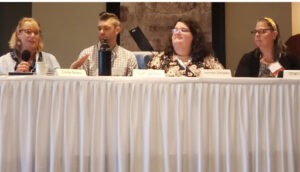
Mr. Greg Olsen, Director of the NYS Office for Aging, kicked off the event Thursday afternoon sharing information on the Master Plan for Aging. Concurrent sessions included Culture and Leadership by Renae Rokicki and Shari Weiss [sponsored by Genentech], Food Security and Nutrition as Medicine presented by Baz Perry, Erin Summerlee and Kate Downes and Creating an Age-Friendly Rural NY with Kat Fisher-Benedetti and Diane Oyler [sponsored by AARP].
The NYSARH Annual Meeting included a number of highlights from 2023 and plans for the coming year. Please view a recording HERE: Attendees enjoyed the opportunity to mingle and chat at the Networking Reception sponsored by Inclusive Alliance.
In an effort to foster peer learning opportunities, the Planning Committee invited subject matter experts to host Round Tables on Friday morning. Many thanks to Ardent Solutions, CACTC, Citizen Action, Farm Net, Inclusive Alliance, MCRHC, Oswego Housing, St. Lawrence EMS and SUNY Albany for their participation.
The Panel on the Rural Opioid Crisis was moderated by Shari Weiss and included Linda Beers, Jennifer Donadio and last-minute substitute Matt Whitman.
The Keynote presentation by Duane Harris, National AHEC Organization featured New York AHEC Directors Kelly Owens, Melanie Rhodes and Whitney Callaghan.
A recap of the Symposium presentations is available on the NYSARH Website under the Events tab.
Interview with Madison County Rural Health Council
In today’s fast-paced world, where life’s pressures can feel overwhelming, the importance of mental health awareness cannot be overstated. Madison County Rural Health Council (MCRHC) is proactively addressing this need through their Mental Health First Aid program. In a recent discussion with Christine Paul and Jamie Hagenbuch from MCRHC, we explored this program’s key aspects and its transformative impact on individuals and communities. Watch the full interview here.
Mental Health First Aid in a Nutshell
Mental Health First Aid is an early intervention program designed to help individuals recognize, understand, and respond to signs of mental health challenges and substance use issues. Originally for adults working with adults, it has expanded to include youth mental health first aid for individuals aged 15 to 18.
Success Strategies in Schools
Implementing Mental Health First Aid in school districts requires a strategic approach, and MCRHC has been highly successful. They credit strong community partnerships and pre-existing mental health support systems within Madison County for their achievements. These connections allowed them to seamlessly integrate the program into schools.
The Ripple Effect of Mental Health First Aid
The impact of Mental Health First Aid is evident in stories of gratitude. Students and community members have credited the training for connecting them to mental health professionals and equipping them to help others in crisis.
Christine Paul shared her personal experiences, stating, “Myself personally, I have a son that’s a sergeant in the police department. So being able to offer the public safety course and having an understanding of the cultural background makes a big difference.” This underscores how the program extends its impact beyond school settings to benefit families, communities, and even public safety professionals.
Expanding Reach and Accessibility
MCRHC offers tailored Mental Health First Aid curricula for various audiences, including adults, teens, public safety, fire EMS, rural communities, and higher education programs. The program’s flexible structure can accommodate different scheduling preferences.
Christine Paul emphasized, “We’ve been really fortunate with our funders right now that we are able to offer this training through our catchment area at no cost.” While the standard cost for this training is $170 per participant through the National Council for Behavioral Health, MCRHC’s commitment to making this vital knowledge accessible ensures that more individuals and communities can benefit from it.
A Call to Action
Mental Health First Aid empowers individuals to make a difference in their communities. In a world where mental health is a growing concern, this training equips individuals to recognize, respond to, and advocate for mental health challenges, saving lives and strengthening communities.
Mental Health First Aid is not just a program; it’s a catalyst for positive change within communities. Jamie Hagenbuch urges everyone to consider the program, saying, “I often feel that the population that might be lacking and may be hesitant to take this training is parents and community members.”
Resources:
MCRHC also offers additional specialized curriculums:
- Fire/EMS
- Higher Education
- Public Safety Curriculum
- Rural Communities Curriculum
These specialized curriculums are conducted in full in-person sessions and are tailored to the specific needs of their respective populations, providing targeted support and training.
Virtual Dementia Education Series
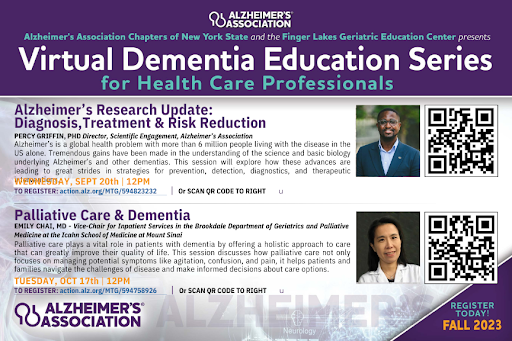
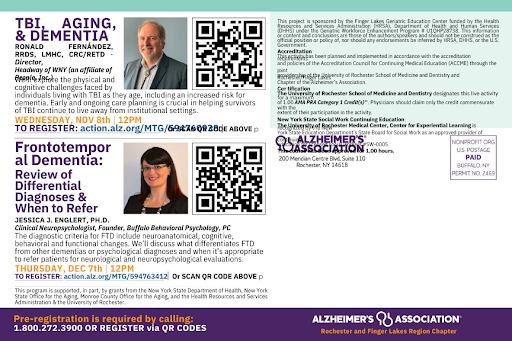
NYSARH participates in the Campaign to End Medical Debt
The New York State Hospital Financial Assistance Law (HFAL) needs urgent reform. A new Community Service Society of New York (CSS) issue brief, “An Ounce of Prevention: Reforming the Hospital Financial Assistance Law Could Save Pounds of Patient Debt,” highlights the failure of the existing law to protect low-income patients and patients of color from medical debt and its long-term impact. The brief reveals how many hospitals fail state audits revealing that they are unable to design and implement an application compliant within existing law. In 2022, CSS found that New York’s nonprofit hospitals had sued more than 54,000 patients in just five years—many of whom should have been eligible for financial assistance. The analysis revealed that hospitals disproportionately sue patients who live in low-income zip codes or zip codes where the residents are mostly people of color. Rural communities are also disproportionately impacted.
The current HFAL requires all New York hospitals with funding from the State’s $1.1 billion Indigent Care Pool (ICP) to have a financial assistance application and policy. However, continued lawsuits and aggressive debt collection action against patients show that those eligible for financial assistance were not screened, were unable to complete the application process, or were improperly rejected.
One of the paper’s authors, Amanda Dunker, spoke to the NYSARH Policy Committee this summer, and several NYSARH members are sharing stories of the impact of medical debt through social media and letters to the editors of their local newspapers in partnership with Citizen Action NY.
You may learn more at https://www.cssny.org/
NY Oral Health Coalition Meeting: Progress on Early Childhood Oral Health Oct 26-27
Join professionals located throughout New York state to learn about ongoing programs, policies, as well as best-practices to improve the oral health of young children and their families. Hear from representatives from the American Academy of Pediatric Dentists, NYS Department of Health, Health Resources and Services Administration and the Oral Health Workforce Research Center. This engaging summit will include keynote speakers, panels, breakout sessions, and networking opportunities.
The program is designed for school-based oral health programs, early childhood programs, Head Start, school-based programs, dental and medical professionals, nurses, community health workers, home visitors and all those working with young children. Come for one day or both days to learn information you can take back with you to implement wherever you work.
The event will be held the afternoon of Thursday, October 26 and all-day Friday, October 27 at the Hilton Garden Inn, Troy, NY. It is sponsored by the New York State Oral Health Coalition, NYS Early Childhood Advisory Council, and Schuyler Center for Analysis and Advocacy One-day and two-day registration is available.
Register https://www.newyorkohc.org/events
NYSARH New President Mike Pease
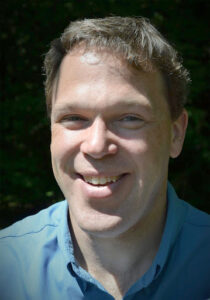 Mr. Michael Pease is the CEO of The Chautauqua Center (TCC), a Federally Qualified Health Center located in Chautauqua County, New York. He earned both his Bachelor’s and Master’s Degrees in Healthcare Administration and is a nurse, as well. During the past 25 years, Mr. Pease has worked for various organizations in both clinical and supervisory roles. The past 15 years, he has worked for TCC and has been involved with the center since its inception. Throughout his career, Mr. Pease has been responsible for developing, implementing, and evaluating a full array of services. He enjoys change management as a key aspect of ensuring organizations not only survive but thrive in the ever-fluctuating, high-pressure healthcare sector. Mr. Pease is a life-long learner, and he believes that to be a meaningful contributor to society we need to grow each day. Mr. Pease has been a long-time resident of Chautauqua County and currently lives in Cherry Creek with his wife of 23 years. He is very active in the community and participates on a number of local, regional, and national boards of directors. In his free time, Mr. Pease enjoys the outdoors and being active.
Mr. Michael Pease is the CEO of The Chautauqua Center (TCC), a Federally Qualified Health Center located in Chautauqua County, New York. He earned both his Bachelor’s and Master’s Degrees in Healthcare Administration and is a nurse, as well. During the past 25 years, Mr. Pease has worked for various organizations in both clinical and supervisory roles. The past 15 years, he has worked for TCC and has been involved with the center since its inception. Throughout his career, Mr. Pease has been responsible for developing, implementing, and evaluating a full array of services. He enjoys change management as a key aspect of ensuring organizations not only survive but thrive in the ever-fluctuating, high-pressure healthcare sector. Mr. Pease is a life-long learner, and he believes that to be a meaningful contributor to society we need to grow each day. Mr. Pease has been a long-time resident of Chautauqua County and currently lives in Cherry Creek with his wife of 23 years. He is very active in the community and participates on a number of local, regional, and national boards of directors. In his free time, Mr. Pease enjoys the outdoors and being active.
NYSARH New Treasurer Nancy Mcgraw, MPH, MBA, LCSW
 President & Owner, McGraw Professional Consulting, LLC
President & Owner, McGraw Professional Consulting, LLC
Adjunct Clinical Assistant Professor, Decker School of Nursing and Health Sciences, Public Health Program, Binghamton University; Caregiver Resource Center Program Coordinator, Cornell Cooperative Extension Sullivan County, NY
Nancy McGraw is a community health planner, consultant, owner and President of McGraw Professional Consulting, LLC. Prior to starting her consultant business, Ms. McGraw served as the Public Health Director for the past 10 years in Sullivan County and also led the Sullivan County Rural Health Network. She has over 25 years’ experience in strategic planning, community and public health planning, needs assessments, grant writing and coalition building. Nancy has been a board member of the New York State Association for Rural Health (NYSARH) for several years and has served on the policy and finance committees, and most recently was elected to serve as Treasurer. She has been involved with local and state level organizations and has contributed to policy development on key mental health and public health issues, including the opioid epidemic, mental health parity, rural health, and access to healthcare services for vulnerable populations.
She currently works full time at Cornell Cooperative Extension – Sullivan County as the Coordinator of the Caregiver Resource Center and is a licensed clinical social worker. She also holds an MBA in healthcare administration from Binghamton University and an MPH from the University at Albany School of Public Health.
New Board Members
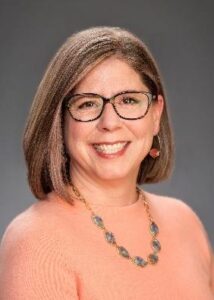 Tina Barber
Tina Barber
Tina Barber, a passionate advocate for rural healthcare, joins the NYSARH Board with a clear mission. Witnessing the accelerating decline and neglect of rural healthcare systems, Tina is determined to be part of the solution. She believes that policy advocacy is crucial to ensuring the survival of rural healthcare and that rural voices must not be overlooked in the pursuit of economies of scale.
Tina brings a wealth of qualifications to her role as a NYSARH Board Member. Her career spans from providing public health education during the HIV pandemic to developing legislative advocacy agendas and training advocates for rural communities. As a funder, she conducted needs assessments, shaping funding priorities based on evidence. Tina’s dedication extends to strategizing for rural prosperity with partners at the Aspen Institute’s Rural Community Strategies Group Intensive. Her unwavering commitment to uplifting rural communities makes her a valuable asset to the NYSARH Board, where she will help shape the future of rural healthcare in New York.
Lisa Berard
Lisa Berard, a dedicated advocate for rural New York State residents’ health and well-being, brings a wealth of personal and professional experiences to her role as a new Board Member for NYSARH (New York State Association for Rural Health). Lisa’s deep commitment stems from her firsthand experiences in Broome, Chenango, and Delaware Counties, as well as her insights into the challenges faced by her family members in Franklin and Essex Counties. These experiences have given her a profound understanding of the pressing issues affecting rural New York State residents and reinforced the need for robust education and advocacy.
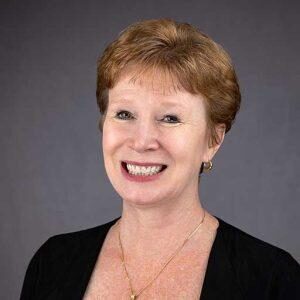
Throughout her career, Lisa has prioritized advocating for vulnerable individuals in the community, with roles ranging from service provider to executive leader. She has passionately served various vulnerable populations, including youth at risk, individuals with Intellectual and Developmental Disabilities (IDD), and low-income individuals and families receiving Medicaid benefits. Her current role at Care Compass Network involves promoting collaboration between healthcare and social care providers to enhance the well-being of Medicaid members and communities. Combining her pharmaceutical industry background with years of social service experience, Lisa is well-equipped to bridge communication gaps in the healthcare sector and contribute significantly to NYSARH’s mission of advancing rural healthcare.
Awards
 Deadline for Applications: October21,2023 Apply at nysarh.org/awards
Deadline for Applications: October21,2023 Apply at nysarh.org/awards
Senator Patricia M. McGee Award
Formerly the Award of Merit, the Senator Patricia M. McGee Rural Health Worker is given to an individual who have made an outstanding contribution of major significance to improve the health of rural populations. The Award was renamed the Senator McGee Award in recognition of the late Senator’s unyielding commitment to improving rural residents’ quality of life through legislation which will have a positive impact for many years to come.
Dr. Gary Ogden Rural Health Practitioner of the Year Award
This award was renamed in honor of Dr. Gary Ogden, who passed away early in 2007. Candidates for this award should exhibit the same qualities we witnessed in Gary; a passion for life, selfless dedication to their community, organization, and especially, their patients; a strong sense of truth, and the conviction, belief, and action to make dreams a reality.
Outstanding Rural Health Program
This award recognizes a community-wide, regional or statewide program involving one or more health care professionals, or entities that promote or facilitate the development of the rural health care delivery system.
Awards
 Deadline for Applications: October21,2023 Apply at nysarh.org/awards
Deadline for Applications: October21,2023 Apply at nysarh.org/awards
Senator Patricia M. McGee Award
Formerly the Award of Merit, the Senator Patricia M. McGee Rural Health Worker is given to an individual who have made an outstanding contribution of major significance to improve the health of rural populations. The Award was renamed the Senator McGee Award in recognition of the late Senator’s unyielding commitment to improving rural residents’ quality of life through legislation which will have a positive impact for many years to come.
Dr. Gary Ogden Rural Health Practitioner of the Year Award
This award was renamed in honor of Dr. Gary Ogden, who passed away early in 2007. Candidates for this award should exhibit the same qualities we witnessed in Gary; a passion for life, selfless dedication to their community, organization, and especially, their patients; a strong sense of truth, and the conviction, belief, and action to make dreams a reality.
Outstanding Rural Health Program
This award recognizes a community-wide, regional or statewide program involving one or more health care professionals, or entities that promote or facilitate the development of the rural health care delivery system.
Upcoming Webinar
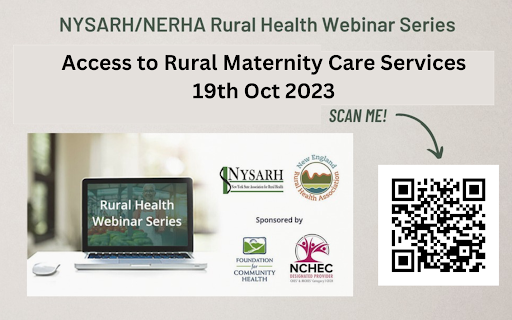
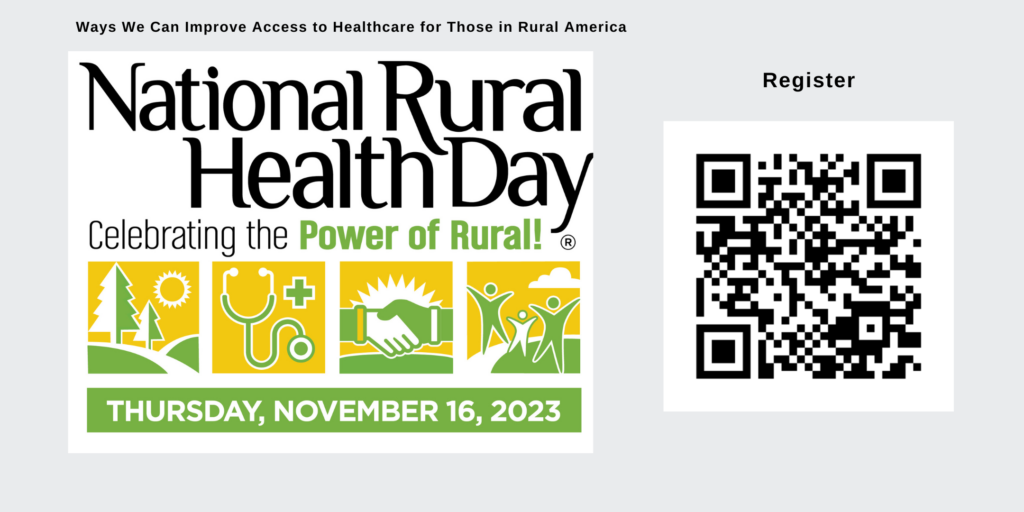

DiNapoli Urges Focus on Addressing Rural Challenges
New York State Comptroller Thomas P. DiNapoli today released a report examining demographic, economic and quality of living trends in 10 rural counties in New York state. Most of the counties had population losses, aging residents, a shrinking labor force, as well as challenges with housing availability and access to health care, food and broadband. The counties selected as representative of rural New York include Allegany, Chenango, Delaware, Essex, Greene, Hamilton, Lewis, Schuyler, Sullivan, and Wyoming.
“New York’s rural areas have vibrant histories and vast potential, but they often face obstacles which amplify one another,” DiNapoli said. “Demographic and other changes pose difficulties for local and state officials as they look for policies to boost communities and increase connectivity and access to health care and other services. Yet the shift in remote work and migration from urban areas could offer opportunities for rural communities to grow and thrive.”
National Disability Employment Awareness Month
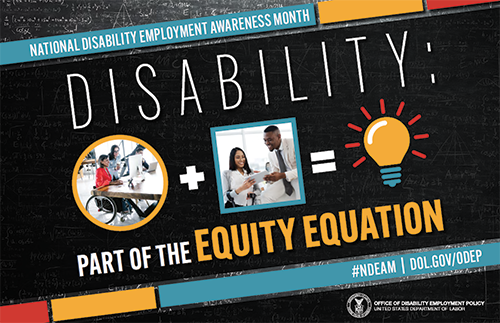
RaP Fellows
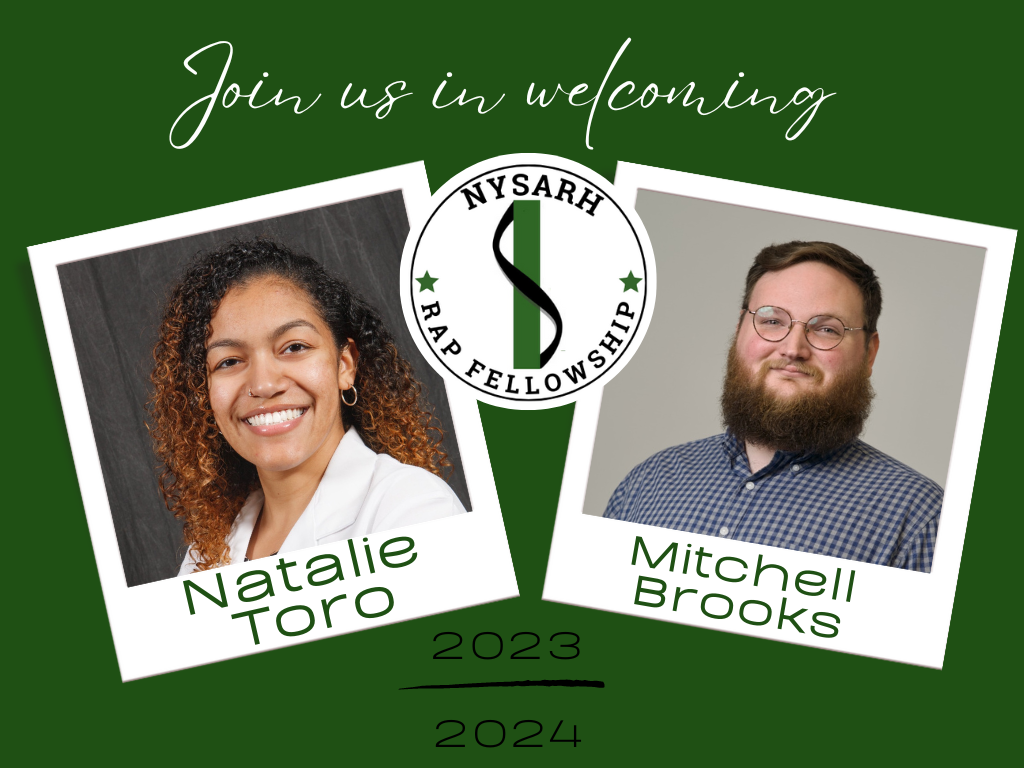
Funding Opportunities
Healthy Steps
The NYS Office of Mental Health (OMH) announces the availability of funds to support the implementation of HealthySteps. Our goal is to promote an intentional focus on prevention activities by identifying and implementing evidence-based and data-informed preventive practices. HealthySteps is an evidence-based program that serves both young children ages birth to three and their families in a pediatric healthcare setting, which is non-stigmatizing and offers universal access.
Laura Jane Musser Fund: Rural Initiative Program
Grants designed to encourage collaborative and participatory efforts among citizens in rural communities that will help to strengthen their towns and regions in a number of civic areas, including economic development, business preservation, arts and humanities, public space improvements, and education.
National Network of Libraries of Medicine Region 7 Grants
Funding for projects in Region 7 (northeastern U.S.) that improve health literacy; increase the ability of the general public to find and use health information; and improve health professionals’ access to, awareness of, and skills for locating high quality biomedical and health information.
New York Health Leadership Fellows
An 18-month fellowship program for current and potential executives of health-related nonprofit organizations, safety-net organizations, and public agencies in western and central New York that address the needs of vulnerable older adults or young children impacted by poverty.
Enhanced Housing for Young Adults with Serious Mental Illness
The Office of Mental Health (OMH) announces this Request for Proposals (RFP) for the development and operation of 7 Enhanced Young Adult Housing programs located throughout New York State for young adults with a serious mental illness (SMI). Each opportunity consists of Apartment Treatment units (5 or 10) and 20 scattered-site supportive housing units. The target population for all seven programs is young adults between the ages of 18 and 25 with serious mental illness who are coming from an institutional setting or community residence, leaving foster care, or are homeless. Some individuals may have a co-occurring substance use disorder (SUD) and be at various stages of recovery. The Enhanced Young Adult Housing model is scattered-site housing that will be sited in the following county(ies).

